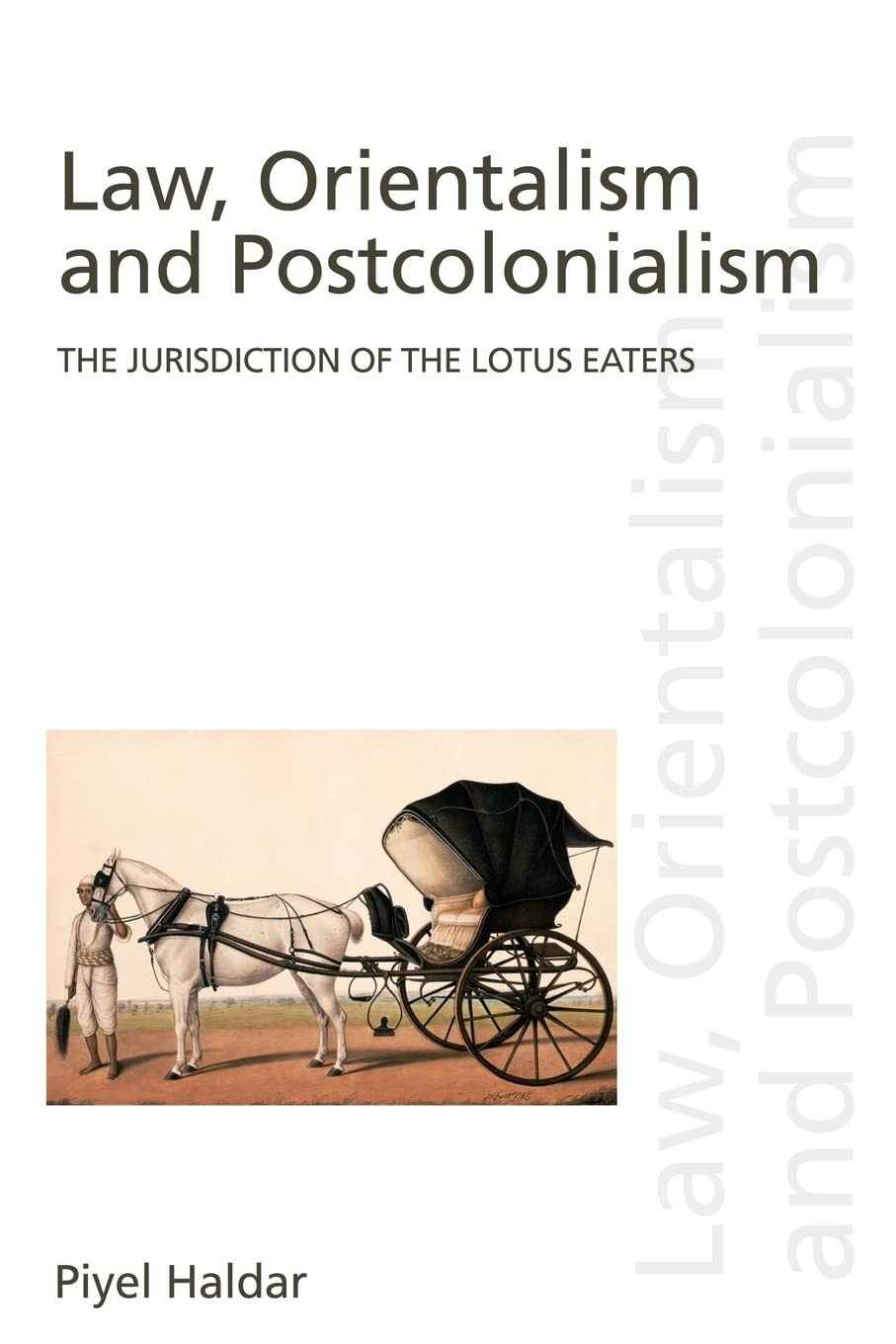
Title

Law, Orientalism and Postcolonialism (Discourses of Law),New
Delivery time: 8-12 business days (International)
Focusing on the problem of pleasure Law, Orientalism and Postcolonialism uncovers the organizing principles by which the legal subject was colonized. That occidental law was complicit in colonial expansion is obvious. What remains to be addressed, however, is the manner in which law and legal discourse sought to colonize individual subjects as subjects of law. It was through the permission of pleasure that modern Western subjects were refined and domesticated. Legally sanctioned outlets for private and social enjoyment instilled and continue to instil within the individual tight selfcontrol over behaviour. There are, however, states of behaviour considered to be repugnant to, and in excess of, modern codes of civility. Drawing on a broad range of literature, (including classical jurisprudence, eighteenth century Orientalist scholarship, early travel literature, and nineteenth century debates surrounding the rule of law), yet concentrating on the experience of British India, the argument here is that such excesses were deemed to be an Oriental phenomenon. Through the encounter with the Orient and with the fantasy of its excess, Piyel Haldar concludes, the relationship between the subject and the law was transformed, and must therefore be reassessed.
By changing our most important processes and
products, we have already made a big leap forward. This ranges from the
increased use of more sustainable fibers to the use of more
environmentally friendly printing processes to the development of
efficient waste management in our value chain.
⚠️ WARNING (California Proposition 65):
This product may contain chemicals known to the State of California to cause cancer, birth defects, or other reproductive harm.
For more information, please visit www.P65Warnings.ca.gov.
Shipping & Returns
Shipping
We ship your order within 2–3 business days for USA deliveries and 5–8 business days for international shipments. Once your package has been dispatched from our warehouse, you'll receive an email confirmation with a tracking number, allowing you to track the status of your delivery.
Returns
To facilitate a smooth return process, a Return Authorization (RA) Number is required for all returns. Returns without a valid RA number will be declined and may incur additional fees. You can request an RA number within 15 days of the original delivery date. For more details, please refer to our Return & Refund Policy page.
Shipping & Returns
Shipping
We ship your order within 2–3 business days for USA deliveries and 5–8 business days for international shipments. Once your package has been dispatched from our warehouse, you'll receive an email confirmation with a tracking number, allowing you to track the status of your delivery.
Returns
To facilitate a smooth return process, a Return Authorization (RA) Number is required for all returns. Returns without a valid RA number will be declined and may incur additional fees. You can request an RA number within 15 days of the original delivery date. For more details, please refer to our Return & Refund Policy page.
Warranty
We provide a 2-year limited warranty, from the date of purchase for all our products.
If you believe you have received a defective product, or are experiencing any problems with your product, please contact us.
This warranty strictly does not cover damages that arose from negligence, misuse, wear and tear, or not in accordance with product instructions (dropping the product, etc.).
Warranty
We provide a 2-year limited warranty, from the date of purchase for all our products.
If you believe you have received a defective product, or are experiencing any problems with your product, please contact us.
This warranty strictly does not cover damages that arose from negligence, misuse, wear and tear, or not in accordance with product instructions (dropping the product, etc.).
Secure Payment
Your payment information is processed securely. We do not store credit card details nor have access to your credit card information.
We accept payments with :
Visa, MasterCard, American Express, Paypal, Shopify Payments, Shop Pay and more.
Secure Payment
Your payment information is processed securely. We do not store credit card details nor have access to your credit card information.
We accept payments with :
Visa, MasterCard, American Express, Paypal, Shopify Payments, Shop Pay and more.
Related Products
You may also like
Frequently Asked Questions
- Q: What is the main focus of 'Law, Orientalism and Postcolonialism'? A: The book examines how law and legal discourse interacted with colonialism and the concept of pleasure, particularly in the context of British India.
- Q: Who is the author of this book? A: The author of 'Law, Orientalism and Postcolonialism' is Piyel Haldar.
- Q: What is the publication date of this book? A: The book was published on February 2, 2008.
- Q: What is the genre of this book? A: This book falls under the category of Foreign & International Law.
- Q: How many pages does this book have? A: The book contains 200 pages.
- Q: What type of binding does this book have? A: The book is available in paperback binding.
- Q: Is this book in new condition? A: Yes, the book is brand new.
- Q: What themes are explored in this book? A: The book explores themes of colonialism, legal subjectivity, and the interplay between Western law and Eastern cultures.
- Q: Can this book be useful for studying postcolonial law? A: Yes, it provides insights into postcolonial legal frameworks and critiques of colonial law.
- Q: What is the significance of pleasure in the context of this book? A: Pleasure is examined as a means through which colonial law sought to organize and control individual behavior.
